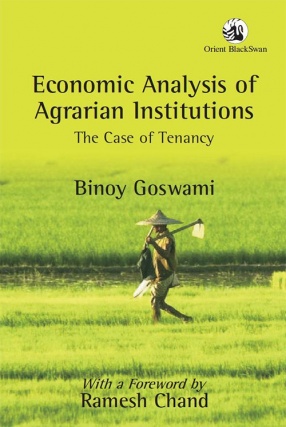One of the most important agrarian institutions is tenancy, and Economic Analysis of Agrarian Institutions takes a fresh look at the issue of tenancy relations and its implications for agrarian development in the context of the changing agro-economic environment of the rural economy.
Through an extensive field study in four districts of the northeastern state of Assam, the author studies the nature of the existing tenancy arrangements in the state and analyses its implications, mainly economic, for agricultural development.
Besides input intensities, the author considers how efficiently land is utilised by farmers under different tenancy contracts, in terms of the adoption of land productivity enhancing practices such as cropping intensity, crop diversification, area under high-yielding varieties of rice, and so on; and the sustainability implications of various forms of tenancy.
Involving both quantitative and qualitative research, this book also details the changes that the rural economy has undergone in recent decades.
It also highlights the various problems with the existing tenancy law, and suggests reforms that will benefit farmers and lead to both the sustainable use of land and overall agricultural development.





There are no reviews yet.